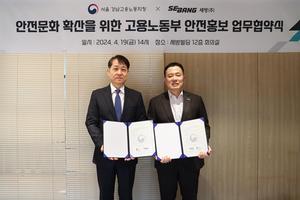 |
Former Korean War commander and first Korean four-star general Paik Sun-yup passed away at the age of 99 in July 2020. While many people hold Paik in high regard for his contributions to the Korean War and early South Korea, his legacy is still tainted by the memory of working with Imperialist Japan. This controversy has, therefore, created a debate between whether Paik deserves to be buried in the Daejeon National cemetery alongside thousands of Korean heroes. Yet before considering these opinions, it is worth noting the specific details of his career.
During the Korean War, Paik’s leadership and guidance epitomized the South Korean spirit of battle that was unwilling to give in to constant pressure from the North. Despite being pushed back into the Busan Perimeter, Paik and his infantrymen remained calm in their efforts, earning them a prestigious victory in the pivotal Battle of Tabu-dong. Following the Battle of Tabu-dong, a seemingly grim reality had turned into a glimmer of hope as the victory renewed the motivation of the combined UN forces. Paik’s victory at the Battle of Tabu-dong allowed General Macarthur of the UN forces to pull off his infamous Incheon Landing, which many people refer to as the true turning point of the war. Paik’s contributions extended throughout the full three years of war in Korea. Once the Korean War had ended with the Armistice Agreement, Paik chose to remain in the Korean army, earning himself the status of the first four-star general and first joint chief of staff of the Republic of Korea. To say the least, Paik was an incredibly important man to the democratization of South Korea. However, Paik’s controversy stems from before the Korean War.
During Japan’s imperialist empire that lasted until 1945, Koreans had formed a negative sentiment towards Japanese efforts to colonize the nation due to the dehumanizing treatment that they received. As a result, any person who showed any support for Japan was often considered a traitor. During this time, Paik had participated in the Japanese efforts to crush any forms of Korean resistance in Manchuria, north of the Korean peninsula. In later accounts, Paik claimed that while he did serve in this unit, he had never encountered any Koreans directly. This seemingly faulty defense of himself has become the center of controversy today, as some now view him as a traitor of the nation because they believed that it was principally immoral to have fought for Japan. On the other hand, others have claimed that Paik had contributed an immeasurable amount of progress to Korea militarily, and thus needs to be acquitted for the mistakes that he had made in the past. Paik’s legacy, while impressive, remains as an example of how legacies cannot be viewed as simply as just “good or bad”, but rather, a holistic view of both the accomplishments and the faults of such figures.
김원재 강남포스트 학생기자 webmaster@ignnews.kr
<저작권자 © 강남포스트, 무단 전재 및 재배포 금지>

 고용노동부 강남지청-세방(주), 안전문화 확산 위한 업무협약 체결
고용노동부 강남지청-세방(주), 안전문화 확산 위한 업무협약 체결


